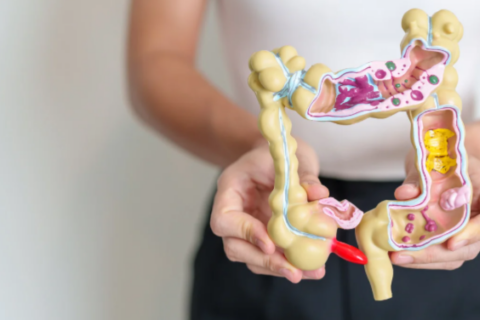How Stress Affects Fat Loss – And How to Fix It
How Stress Affects Fat Loss — And How to Fix It
(The Research-Backed Guide for Anyone Trying to Lose Weight More Easily)
Most people think fat loss is all about calories, workouts, and willpower. But there’s another major factor that silently sabotages results: stress.
Chronic stress doesn’t just make you feel tense or overwhelmed — it changes your physiology, your hunger cues, your habits, and even how your body stores fat. If you’ve ever felt like you’re “doing everything right” but still not seeing progress, stress may be the missing piece.
Let’s break down what stress actually does inside the body and how you can lower it so your fat loss efforts finally work the way they should.
How Stress Disrupts Fat Loss (What’s Happening Inside Your Body)
1. Stress raises cortisol — and cortisol affects fat storage
When you experience ongoing stress (work, poor sleep, family demands, money stress, or even dieting too aggressively), your body releases more cortisol, your fight-or-flight hormone.
Research from the Yale Stress Center and other endocrinology studies shows:
- Elevated cortisol increases appetite
- It enhances cravings for high-sugar, high-fat “comfort foods”
- It promotes visceral fat storage — the deeper belly fat linked to metabolic issues
- It reduces your ability to maintain lean muscle
When cortisol stays elevated too often, it signals to your body: “Store energy. Hold onto fat.”
This is the opposite of what you want during a fat-loss phase.
2. Stress disrupts sleep — and poor sleep increases hunger hormones
Studies from the National Institutes of Health and the American Academy of Sleep Medicine show:
- Poor sleep increases ghrelin (your hunger hormone)
- It decreases leptin (your fullness hormone)
- It increases cravings for sugar, salt, and simple carbs
- It impairs decision-making and self-control
This is why someone can feel perfectly disciplined…and then lose all willpower at 8 p.m. when they’re exhausted.
It’s biology — not lack of motivation.
3. Stress lowers NEAT (your daily movement)
NEAT = non-exercise activity thermogenesis — things like walking, fidgeting, chores, steps, etc.
When stressed, people naturally:
- Sit more
- Move less
- Skip workouts
- Feel too overwhelmed to plan meals
- Spend more time on the couch or computer
Studies from the Mayo Clinic confirm that NEAT can vary by hundreds of calories per day — which adds up quickly.
You could be training hard 3–4 times per week but still burning far fewer calories overall simply because stress suppresses your desire to move.
4. Stress increases emotional and “escape” eating
Stress makes your brain seek comfort — fast.
Not salads.
Not protein.
Sugar, carbs, and hyper-palatable snacks.
Research from Harvard Medical School and the American Psychological Association shows that under stress we’re more likely to:
- Eat mindlessly
- Reach for convenience foods
- Overeat in the evening
- Snack out of emotion rather than hunger
This is one of the biggest silent fat-loss killers.
How to Fix Stress So Fat Loss Gets Easier
Reducing stress isn’t about eliminating stress — that’s impossible.
It’s about changing how your body responds so you can break the physiological chain that leads to weight gain.
Here’s how.
1. Fix Sleep First (This is the #1 Stress Solution)
Even a single bad night of sleep can increase cortisol by 37% and raise cravings significantly the next day.
Aim for:
- 7–9 hours per night
- A consistent sleep/wake schedule
- No screens for 30–60 minutes before bed
- A cool, dark room
- A simple wind-down routine
If fat loss is your goal, sleep isn’t optional. It’s metabolic therapy.
2. Add “Micro-Recovery Moments” During the Day
You don’t need 60 minutes of meditation.
Try 2–5 minute stress-relief resets:
- Deep breathing
- A 5-minute walk
- Stretching
- Stepping outside
- Listening to calming music
- Box breathing or physiological sighs
Tiny resets reduce cortisol more than people realize — and improve self-control around food.
3. Strength Train Consistently
Strength training lowers stress hormones, increases endorphins, and helps maintain (or build) lean mass — which supports fat loss even during stressful seasons.
Even 2 sessions per week can significantly improve how your body handles stress.
4. Eat Regular, Protein-Focused Meals
Skipping meals increases stress on the body and often leads to overeating later.
Keep it simple:
- Eat every 3–4 hours
- Include 20–40g protein each meal
- Pair with veggies or fruit
- Add healthy fats for satiety
This stabilizes blood sugar and makes your stress response less reactive.
5. Increase NEAT on purpose
Stress pushes NEAT down.
So you must deliberately push it back up.
Try:
- A 10-minute walk after meals
- 6k–10k daily steps (flexible depending on your fitness level)
- Light movement in the morning
- Standing breaks every 45–60 minutes
This burns calories without feeling like more exercise and reduces cortisol.
6. Reduce “All or Nothing” dieting
Aggressive calorie cuts raise cortisol dramatically.
A more moderate deficit paired with strength training is more effective long term.
If your diet feels like punishment…your stress hormones will reflect it.
Signs Stress Is Blocking Your Fat Loss
If you’re experiencing any of the following, stress may be the root cause:
- Constant cravings
- Belly fat that won’t budge
- Poor sleep
- Feeling “wired but tired”
- Moody or irritable
- Low motivation
- Plateau despite consistent workouts
- Nighttime overeating
- Feeling chronically overwhelmed
These are physiological flags — not personality flaws.
When to Talk to a Professional
If you suspect deeper issues — thyroid dysfunction, adrenal issues, depression/anxiety, or major sleep disorders — talk to your doctor or mental health provider.
Fitness and lifestyle changes help significantly, but some people need medical support too.
Bottom Line
Stress affects fat loss in multiple ways — hunger, hormones, cravings, sleep, movement, metabolism, and even your decision-making.
The good news?
You can fix it with small, consistent actions that calm your body and support your brain.
If you focus on sleep, strength training, NEAT, steady meals, and stress-reducing routines…
Fat loss gets easier — not harder.
Want help managing stress while getting leaner, stronger, and healthier?
This is exactly what we coach at ELITE Fitness Alliance.
Book a session, build a sustainable plan, and stop letting stress run the show.



